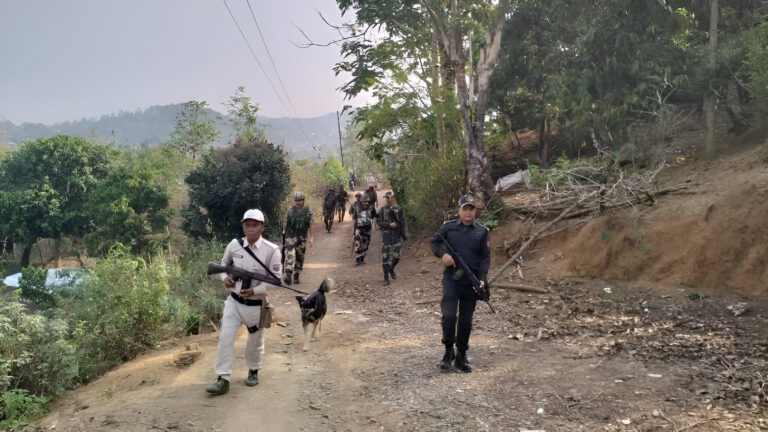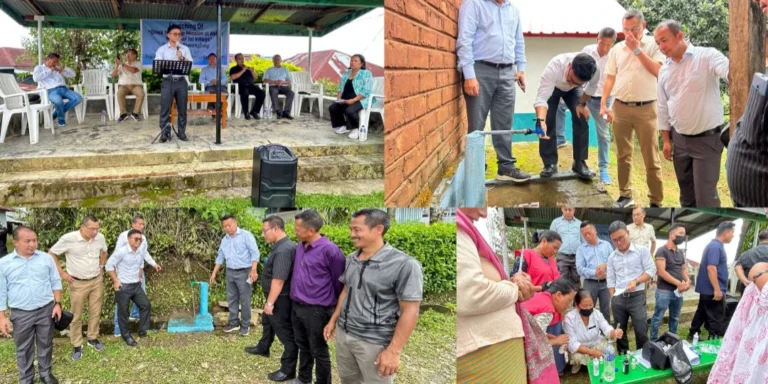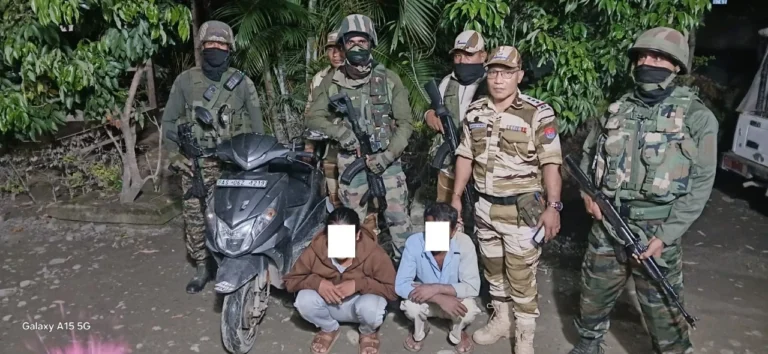“Matter of Great Concern”: PM Modi’s Absence in Manipur Sparks Criticism
Summary
The ongoing crisis in Manipur has drawn sharp criticism toward Prime Minister Narendra Modi for his lack of a visit to the conflict-ridden state. Rajya Sabha MP Manoj Jha described the Prime Minister’s absence as a “matter of great concern,” emphasizing the need for visible leadership during such turbulent times. This debate highlights the growing discontent over the handling of Manipur’s situation and the absence of direct engagement from the nation’s top leadership.
Introduction: The Importance of Leadership in Times of Crisis
When a state faces turmoil, the role of leadership becomes critical in guiding people toward peace and rebuilding trust. In the case of Manipur, which has been grappling with social unrest and ethnic tensions, the absence of Prime Minister Narendra Modi has become a hot topic. Critics argue that his lack of physical presence sends the wrong message to the affected citizens.
Let’s unravel the situation to understand why this absence has raised eyebrows and what it signifies for Manipur and the nation.
The Current Scenario in Manipur
Manipur, located in Northeast India, has been the epicenter of violent ethnic clashes and political instability. The conflict stems from deep-seated issues between the Meitei and Kuki communities, which have led to displacement, loss of lives, and widespread destruction.
While several leaders, both state and central, have made efforts to quell the unrest, the crisis remains unresolved. The people of Manipur feel abandoned, and the absence of the Prime Minister has only added to their disillusionment.
Manoj Jha’s Criticism: A Call for Accountability
Rajya Sabha MP Manoj Jha minced no words when he addressed the Prime Minister’s absence. Referring to it as a “matter of great concern,” Jha questioned why PM Modi has not visited Manipur to address the crisis firsthand.
The Power of Symbolism
Leadership is not just about making decisions from afar; it’s also about showing up when people need assurance. A visit by the Prime Minister would symbolize solidarity and compassion, sending a strong message to the affected citizens that their struggles are acknowledged at the highest level.
Rhetoric vs. Action
Critics argue that while the central government has issued statements and policies, these measures often fall short without visible leadership. For many, PM Modi’s visit could have been a turning point, offering much-needed hope to the people of Manipur.
Why PM Modi’s Visit Matters
1. Rebuilding Public Trust
Manipur’s citizens feel disconnected from the central government’s efforts. A visit from the Prime Minister could bridge this gap, reinforcing trust in governance.
2. Setting a Precedent for Accountability
When a leader visits a troubled region, it sets a precedent for accountability. It shows that the nation’s leadership is willing to face challenges head-on rather than relying solely on bureaucratic channels.
3. International Image
India’s handling of internal conflicts is closely watched by the global community. The absence of the Prime Minister in a crisis of this magnitude can tarnish the country’s image, suggesting a lack of empathy or urgency.
Manipur’s Plight: More Than Just Politics
The ongoing conflict is not just a political issue; it’s a humanitarian crisis. Families have been torn apart, children displaced, and communities fractured. In such scenarios, the presence of a leader offers more than just political reassurance—it provides emotional support.
Grassroots Impact
For the people on the ground, a leader’s visit can feel like a lifeline. It’s a gesture that says, “We see you, and we’re here to help.” Without this, many in Manipur feel ignored and marginalized.
Counterarguments: Is a Visit Really Necessary?
While the criticism is loud, some argue that a visit from the Prime Minister may not be the ultimate solution.
1. Security Concerns
Given the volatile situation, ensuring the Prime Minister’s safety during a visit could divert resources away from addressing the core issues.
2. Governance from Afar
Supporters of PM Modi argue that leadership isn’t always about physical presence. They cite various policies and initiatives introduced to address Manipur’s crisis as proof of his active engagement.
Steps the Government Must Take Moving Forward
1. Immediate Conflict Resolution
The government must prioritize facilitating dialogue between the conflicting communities to restore peace and order.
2. Transparent Communication
Clear and regular updates from the central government can help reduce the feeling of abandonment among Manipur’s citizens.
3. Long-term Development Plans
Beyond resolving the immediate conflict, sustainable development in the region is crucial. Infrastructure, education, and employment opportunities can help rebuild Manipur’s economy and social fabric.
FAQs
1. Why is PM Modi’s absence in Manipur significant?
His absence is seen as a lack of direct engagement in a critical crisis, raising questions about leadership and empathy.
2. What did Manoj Jha say about the situation?
Manoj Jha described the Prime Minister’s absence as a “matter of great concern,” emphasizing the importance of visible leadership.
3. What are the root causes of Manipur’s unrest?
The conflict stems from ethnic tensions between the Meitei and Kuki communities, exacerbated by political and social inequalities.
4. Can a visit from the Prime Minister resolve the crisis?
While a visit might not resolve the conflict directly, it would symbolize solidarity and reassure the people of the government’s commitment to finding solutions.
5. What are the next steps for Manipur?
The government must focus on conflict resolution, transparent communication, and sustainable development to address both immediate and long-term issues.



